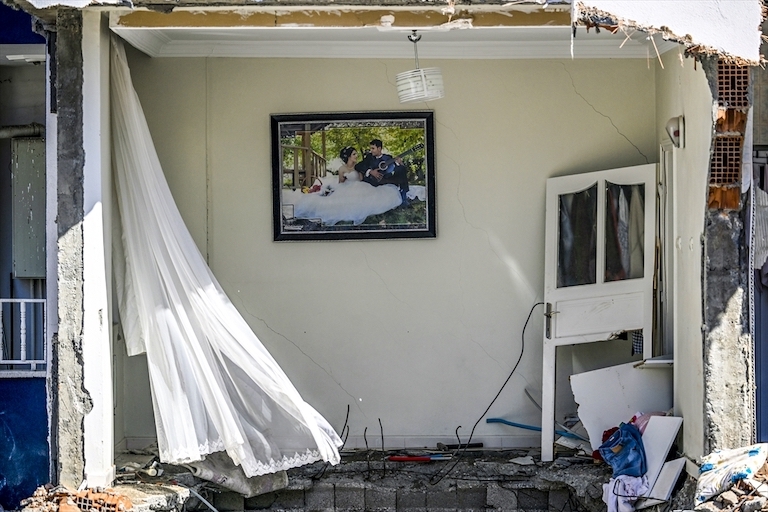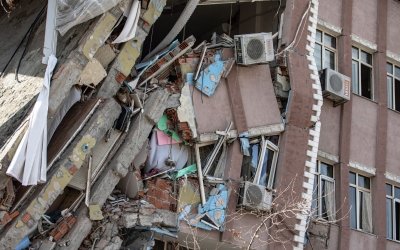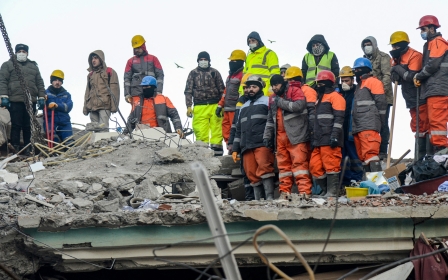Turkey earthquake: Reconstruction cost estimated at $45bn

The reconstruction of 10 provinces devastated by 7.8 and 7.6 magnitude earthquakes in southern Turkey has been projected to cost nearly $45bn, according to estimations by a Turkish business journal.
Ekonomim newspaper on Monday reported that nearly 130,000 buildings, comprising of 384,000 homes, would have to be bulldozed in the aftermath of the powerful earthquakes that have killed nearly 43,000 people in Turkish cities since 6 February.
The estimated cost, which amounts to 843bn Turkish liras, would cover repairs and reconstruction of residential buildings and infrastructure, including roads, water supply, electricity and sewage system.
"This figure equals 30 percent of the 2023 budget deficit and is nearly double the 454bn liras allocated in the budget for investment in public institutions," Ekonomim said.
Turkish Environment, Urbanisation and Climate Change Minister Murat Kurum said the government would build new houses, as large as 105 sqm, for earthquake survivors, at an expected cost of $83,000 per unit, including the infrastructure expenditure.
New MEE newsletter: Jerusalem Dispatch
Sign up to get the latest insights and analysis on Israel-Palestine, alongside Turkey Unpacked and other MEE newsletters
President Recep Tayyip Erdogan has announced that reconstruction would start in March, with the aim of having the earthquake zone rebuilt within a year.
Industry experts estimate that the cost of clearing the rubble for each building would average $13,000, while the required bulldozing for at least 51,000 buildings would cost $667m, according to Ekonomim. They add that the recycling of the rubble could generate an income of $265m.
Demolition specialist Mehmet Ali Bulut said all of the demolition contractors, around 2,000 companies, should join the effort.
"If all companies are commissioned, each one can undertake the demolition and removal of debris from 25 buildings," Bulut, who is also the former president of Demolition Contractors Association, was quoted as saying by the newspaper.
He said that he demolition and removal of rubble could take approximately one month per building, and that it would take approximately a year to clear and dispose of the debris.
Bulut added that the industry would need to invest in purchasing advanced machinery, such as remote-controlled devices, and that 4,000 units of construction equipment would be needed for the demolition project, which private Turkish companies currently have in their inventory.
"In total, 16,000 personnel will need to be assigned for simultaneous demolitions," he said.
President of Earthquake Strengthening Association (DEGUDER) Sinan Turkkan, meanwhile, emphasised that it was not possible to remove debris quickly due to the possibility of finding lifeless bodies under the rubble.
"Recycling facilities should be established in the rubble collection areas. The debris can be used in road construction and as filling material. It can be used in new construction because resources are not unlimited," he said.
Middle East Eye delivers independent and unrivalled coverage and analysis of the Middle East, North Africa and beyond. To learn more about republishing this content and the associated fees, please fill out this form. More about MEE can be found here.





